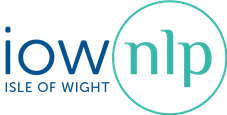A few words to the uninitiated......for those who wish to know a little more about NLP, Coaching, mBIT and Hypnosis.
NLP - a user's manual for the mind
Neurolinguistic Programming (NLP) is a fascinating approach that explores the connection between our thoughts, emotions, body sensations, language and behaviours. It's like a user manual for your mind, helping you understand how your mind works and how you can use it to create positive change in your life.
As a behavioural modelling tool, NLP involves studying the patterns and strategies used by successful individuals in order to replicate their success.
By becoming aware of the many patterns of thinking, feeling and behaving we use (mostly out of awareness) we can make conscious changes to improve our communication, our inner, 'self talk', overcome challenges and achieve our goals.
NLP techniques can be used to enhance personal development, improve relationships, boost confidence, and even overcome fears and phobias. It's all about reprogramming your mind to think and act in more empowering ways.
A couple of references for you:
HERE
and
HERE.
Coaching - a powerful tool for changing behaviour
Coaching has been used for decades in business and now takes a particularly important role in helping develop leadership and people management competencies.
Coaching is a dynamic conversation that is geared towards exploring 'stuck' thinking and finding solutions. At its heart, coaching is a process where questions are asked by a coach that raises awareness within the individual about why they are stuck and how to generate positive and productive behaviours.
Great coaching relies on a relationship of trust and mutual respect. The relationship between the coach and the client is paramount in achieving the changes needed.
Unlike mentoring or training, the coach rarely brings expertise or contextual knowledge. Rather, the coach facilitates a process of inquiry, guiding the client to a deeper understanding of their situation and, subsequently, co-creating with the coach viable and measurable steps forward. It is precisely this non-judgemental, free from bias approach that allows the client to grow. Coaching helps someone change from the inside out.
A couple of interesting articles can be found HERE and HERE.
mBIT - multiple brains integration techniques
Did you know that you have more than one brain?
Decades of research (let alone a few thousand years of ancient wisdom) has confirmed that we have three brains: one in our head, one in our heart and one in our gut, each providing unique and interdependent functions.
Given the increasingly 'VUCA" world, where uncertainty and volatility is more and more common, we all need to develop greater wisdom and more flexible ways of thinking, feeling and behaving. Whether in business or as an individual, using only our head brain is going to limit our potentials and restrict our capabilities to grow and perform to our best.
mBIT coaching helps to create a more cohesive and integrated response to the increasing challenges we find at work and in life generally.
A couple of references for you:
HERE
and
HERE.
Hypnosis - accessing the power of the unconscious
When many people think about hypnosis, they often bring to mind the things they've seen on TV or the movies - magicians who can take control of someone else's mind and manipulate their thoughts and behaviours.
In fact, these theatrical shows are just that - entertainment. In reality, there is considerable scientific research that evidences the benefits of 'real' hypnotherapy. Hypnosis, or sometimes called trance, is a naturally occurring state that we all enter, mostly out of awareness, many times each day. Why? Because trance states are important to our mind-body system as they play a crucial role in processing data and experiences.
Much more that we sometimes recognise, our unconscious takes care of a huge amount of human systems; from our emotions, thoughts, behaviours and even our physical health, the less-than-conscious aspects of our selves is always active and engaged.
It's therefore very helpful to get to know our unconscious - it knows much more about what's going on for us than we often appreciate!
A useful article can be found HERE.
